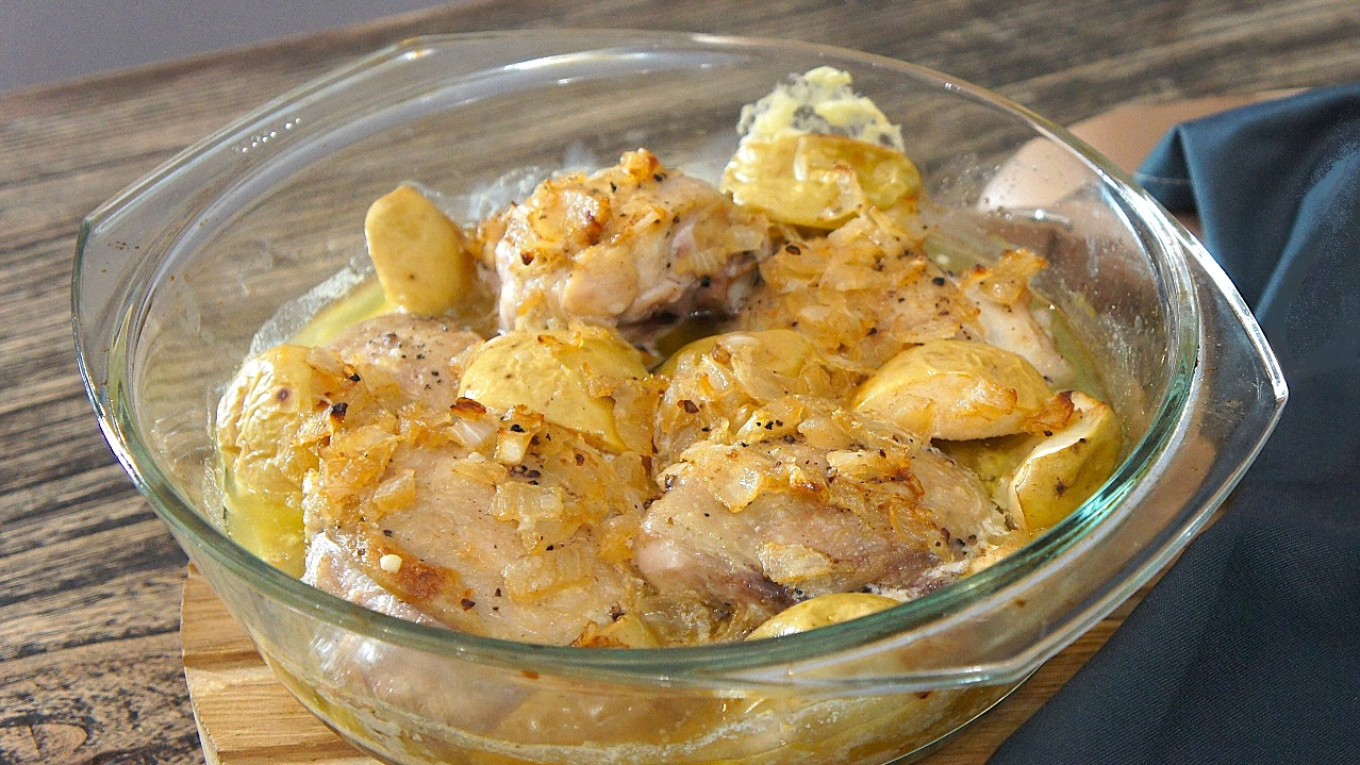Apples are not at all as simple as they seem. Although they seem ordinary, no other fruit has left such a large trace in world history.
In Russia, cultivated varieties of apples appeared in the 11th century during the reign of Yaroslav the Wise. It is believed that the first apple orchard was planted on the territory of the Kyiv-Pechersk Lavra.
How do we know this? Like many details of Russian history, today we can only guess about it from some details in old texts. For example, the Paterik of the Kyiv Pechersk Monastery — a collection of stories about its foundation and the lives of the first monks — tells a curious story.
Monk Gregory the Wonderworker in the last third of the 11th century had an apple orchard. Thieves often tried to steal the fruit, but Monk Gregory always just humbly admonished them to live an honest life. In this legend, however, we are more interested in the apples than the thieves. It’s clear that the fruits growing in the monastery were not wild varieties of apples. How do we know this? Because what would be the point of stealing them if the same apples could be found anywhere?
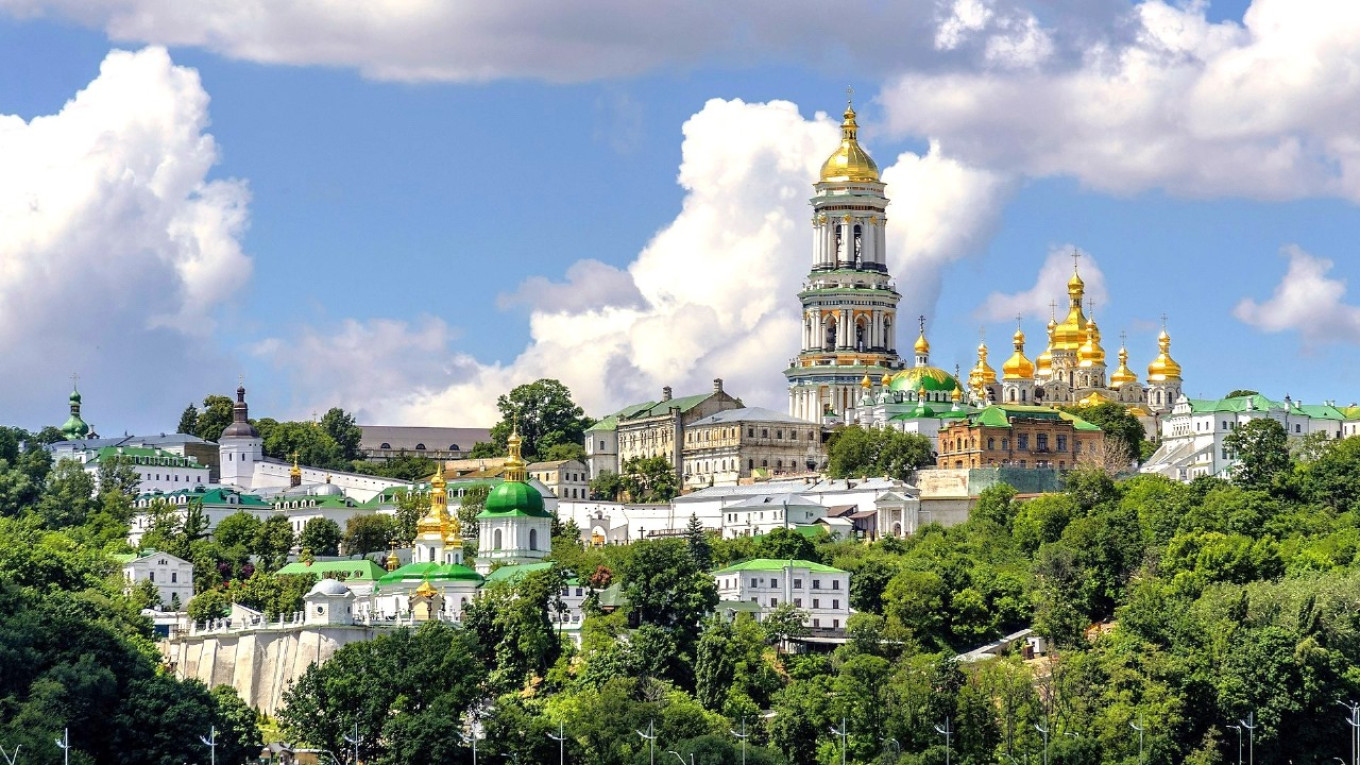
In the 11th century the domestic apple tree (Malus domestica Borkh) became widespread in Russia. Specialists note that before that, only a wild species — the forest apple tree (Malus sylvestris) — was found in the mid-Dnipro region. Its small and bitter apples were not eaten off the branch. But the fruits of cultivated apple trees were probably a rare and expensive delicacy at that time. The cultivated tree was imported from Greece via the Dnipro River. It was sent to the monastery, which had close contacts with Greek Athos.
But everything changes after a couple of centuries. By the 15th century apple trees in Russia were largely domesticated. Garden apples differed not only in taste but also in size. Again, we only have indirect evidence in the Chronicles: “In the summer of 6995 [1487] there was a town in Pskov as big as a garden apple.” The adjective “garden” clearly means that the fruit was big, larger than wild apples. And it's clear that by then everyone knew what a "garden apple" was.
In October 1476, Grand Duke Ivan III traveled to Novgorod. Along the way there were meetings and feasts with the local nobility in Volok, Torzhok and other towns. The townspeople in the trading quarters solemnly met the prince, made requests and gave offerings. “The headman Ivashko Obakumov brought a barrel of white wine and 150 apples.” Naturally, apples for the Grand Duke had to be sweet and special.
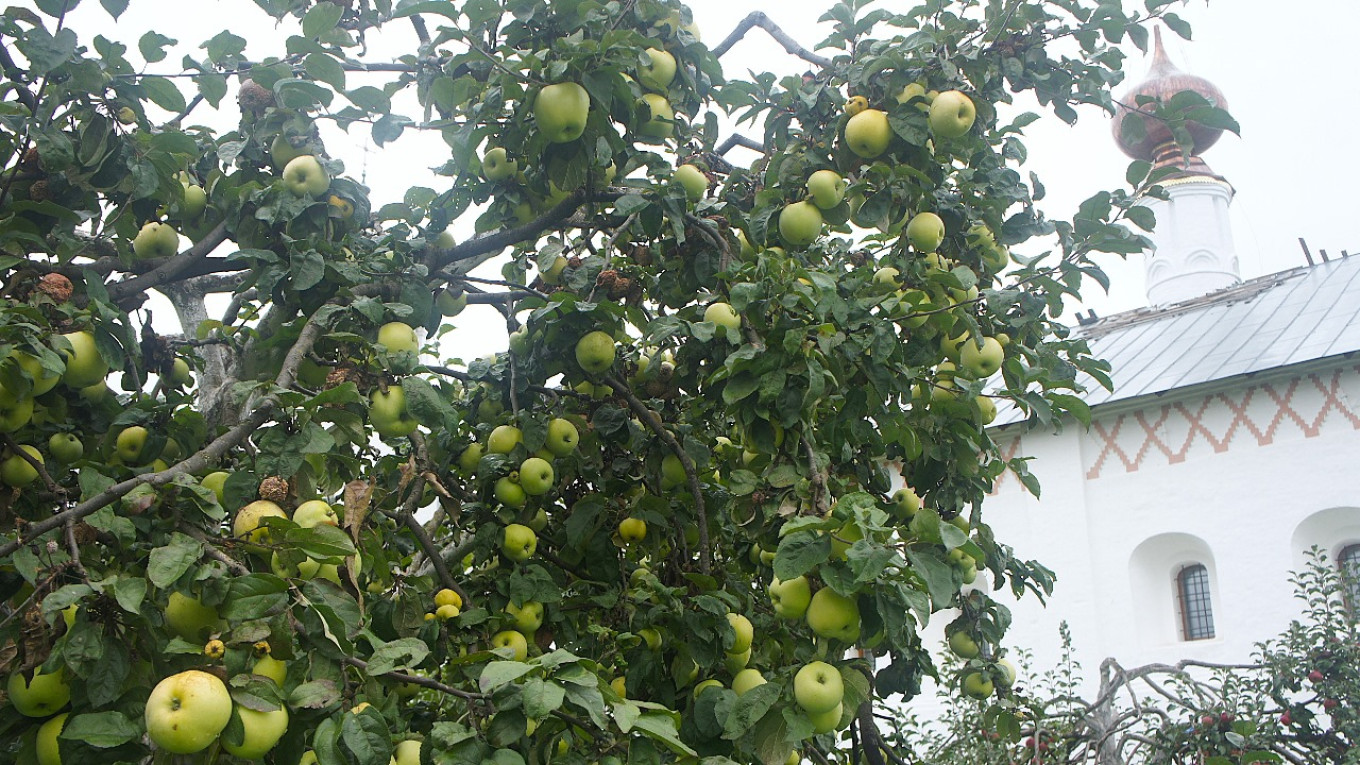
There is a great deal of information about Russian apples in the works of foreign travelers to medieval Muscovy. “In some places,” wrote Adam Olearius (based on his travels to Russia in 1633-36), "especially in Moscow, there are also excellent apples, pears, cherries, plums and currants ... Among other good kinds of apples, in Russia there is one so tender and white that if you hold the apple in the light against the sun, you can see the seeds inside it. But although this apple looks and tastes very good, it is so juicy and tender that it cannot be preserved as long as apples in Germany.”
There was a huge variety of dishes prepared from apples. In many respects, the recipes were designed to solve the task of preserving and storing the fruit. The simplest way was to pickle them. The varieties used for this were cheap, and it wasn’t hard to put up a barrel of soused apples for the winter.
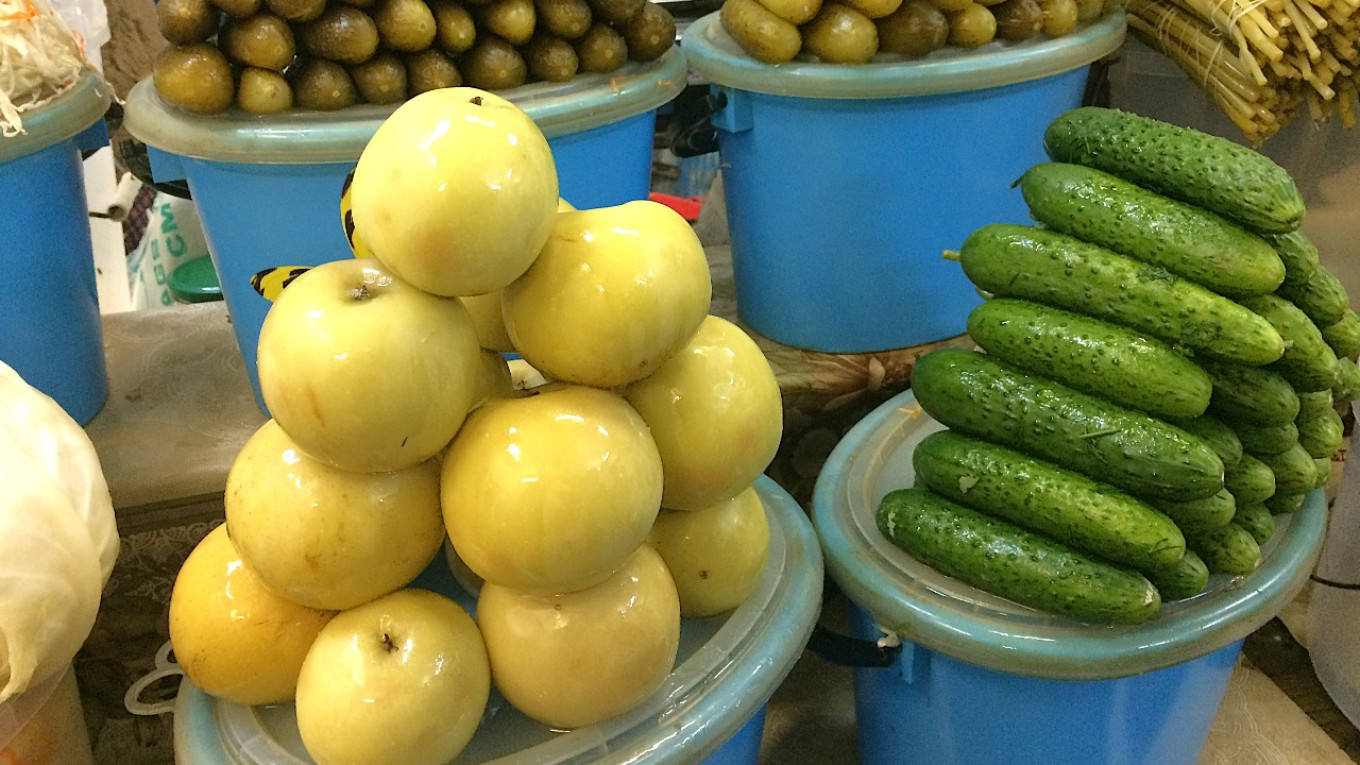
How they were pickled hardly changed over the centuries. Steamed (and therefore sterile) straw is laid on the bottom of the barrel. A piece of rye bread is crumbled on top or rye malt is poured over it. The richer houses even put in so-called kvassniki — pies made of rye flour and malt, which were also broken into pieces. Straw was laid on top again. Apples were put on top of the straw and covered with ordinary well water. All this stood for a week or two in barns, cellars or icehouses.
A more festive dish was baked apples. Cored apples were covered in honey and baked in the oven. People also made apple pies — one of the most common and widespread pies in Russia.
Another way to preserve the fruit was a method mentioned by the personal physician of the Russian tsar, German Jacob Reutenfels in 1680. In his “Tale of Muscovy” (De rebus Moschoviticis), he reported that Russians consumed apples “both fresh and boiled in honey.” This was the ancient ancestor of modern jam.
But apples are also a great addition to hot dishes. They can even make week-night chicken bright and elegant, as in one of our favorite recipes.
Chicken Baked with Apples
Ingredients
- 4 chicken thighs with bone and skin
- 1 Tbsp clarified butter (or olive oil)
- 1 medium onion
- 150 ml (2/3 c) apple cider (can be replaced with apple juice - 80 ml [1/3 c] apple juice and 70 ml [5 Tbsp] sparkling water)
- 2-3 medium sour-sweet apples
- 50 ml (1/4 c) light cream (22% fat) for the sauce
- salt, freshly ground black pepper to taste
Instructions
- Preheat the oven to 180°C /355°F.
- Dice the onions.
- Core and cut the apples into slices.
- Season the chicken thighs on both sides with salt and pepper.
- Heat the oil in a deep skillet (sauté pan) over medium to high heat.
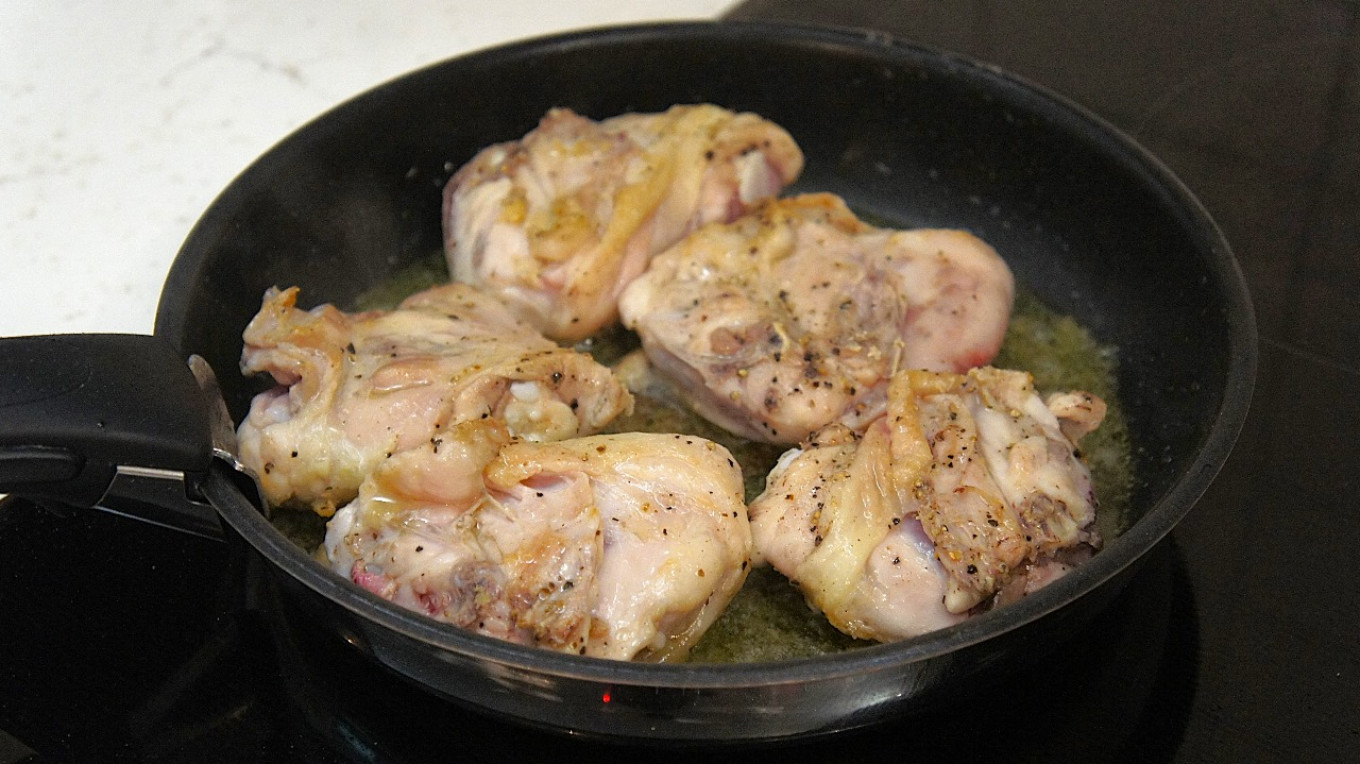
- Place thighs in hot oil, reduce heat to below medium and cook until browned on both sides, about 4 minutes per side. Transfer chicken to a baking dish, cover with foil or a lid to keep warm.
- Place the sliced onion in the skillet and sauté until it begins to brown, about 3 minutes.
- Pour in the apple cider. Using a spatula, scrape the browned chicken from the skillet into the sauce. Season with salt. Cook over low heat until onions are soft, 4 to 5 minutes.
- Add cream, stir, and remove from heat.
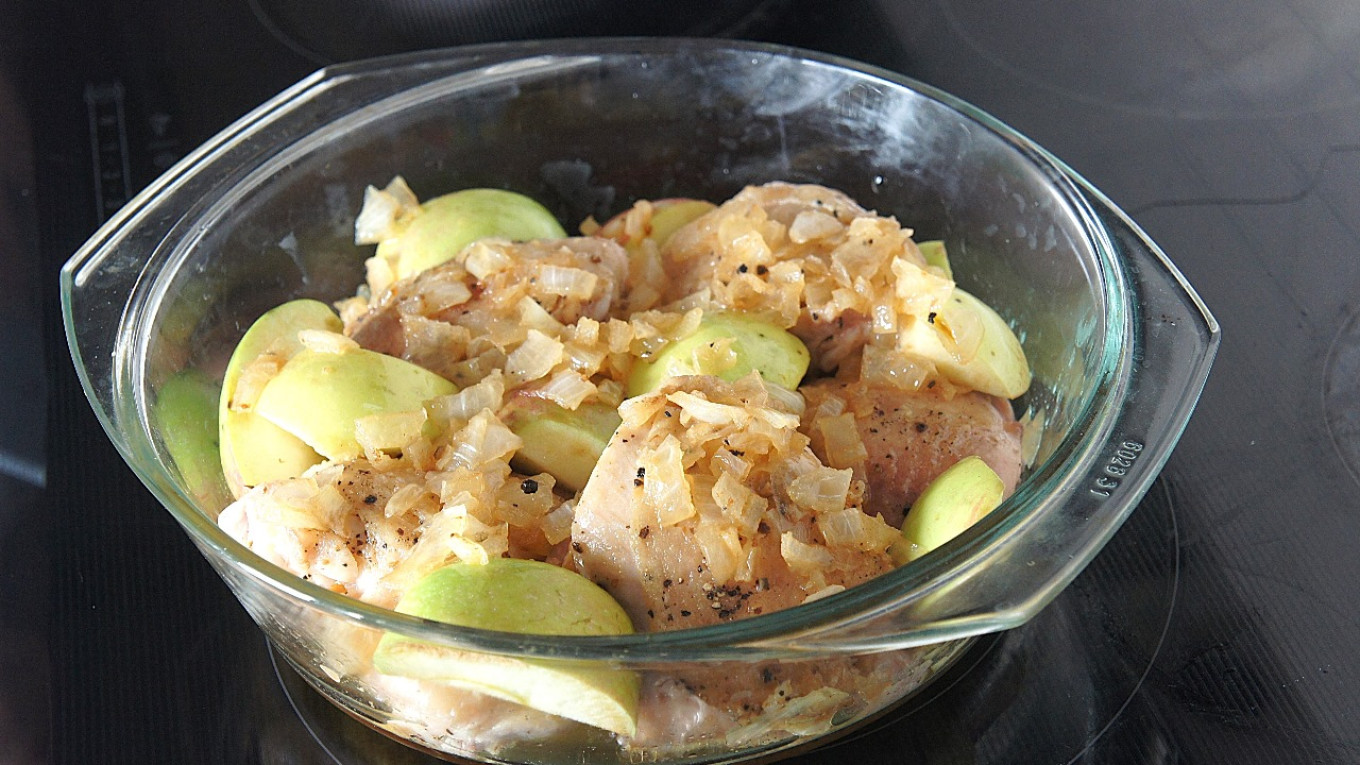
- Arrange the sliced apples around the chicken and pour the sauce over the chicken.
- Place in the preheated oven.
- Bake for 30-45 minutes until apples and chicken are cooked.
The apples should become soft and the chicken should release clear juice when pricked.
The internal temperature of the chicken (near the bone) should be 74°C /165°F.
Take the pot out of the oven, let rest for 10 minutes. Serve with rice.
A Message from The Moscow Times:
Dear readers,
We are facing unprecedented challenges. Russia's Prosecutor General's Office has designated The Moscow Times as an "undesirable" organization, criminalizing our work and putting our staff at risk of prosecution. This follows our earlier unjust labeling as a "foreign agent."
These actions are direct attempts to silence independent journalism in Russia. The authorities claim our work "discredits the decisions of the Russian leadership." We see things differently: we strive to provide accurate, unbiased reporting on Russia.
We, the journalists of The Moscow Times, refuse to be silenced. But to continue our work, we need your help.
Your support, no matter how small, makes a world of difference. If you can, please support us monthly starting from just $2. It's quick to set up, and every contribution makes a significant impact.
By supporting The Moscow Times, you're defending open, independent journalism in the face of repression. Thank you for standing with us.
Remind me later.



